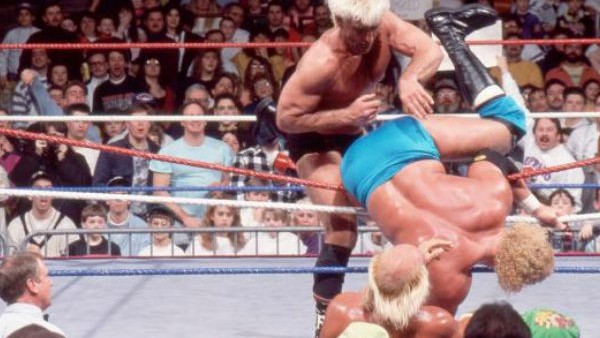Why WWE Is Getting The Royal Rumble Wrong

It wasn’t a party in 1990 or 1992, held aloft all these years—and all of this heightened in-ring quality later—as eternal classics of the genre. Those matches live on despite featuring no surprise entrants. The former featured an unreal procession of megastar after megastar. It needed no propping up by nostalgia acts because the WWF, at the time, was marching forward relentlessly, shaping its future. The latter informs Ric Flair’s legacy as much as those seminal, charisma-drenched studio promos and his trilogy of classics with Ricky Steamboat.
In creating so many shock value talking points—Nia Jax! Hornswoggle! Dolph Ziggler again!—WWE buried the lede. Sunday’s main event didn’t really feel like Seth Rollins’ big moment. His story, his effort, was obscured by wave after wave of contributed subplots that coalesced into an uneven, controversial whole. Seth Rollins didn’t persevere through a field of fiercely motivated peers, using character traits unique to him—stamina, unparalleled athleticism, the motivation to be the best under a new, self-imposed moral framework—he lasted 43:26 in a match he didn’t contribute a great deal to. Unlike Shawn Michaels or Chris Benoit, he barely starred in his own vehicle.
Are we projecting our subjective desires onto the Rumble? Certainly. But the problem is that we all are, and WWE, juggling everything, is dropping the ball.
Is it fun, or is it serious? When the Rumble is fun, it’s big daft stupid fun. You’d have to be devoid of joy entirely to not appreciate at least one of these modern-day tropes. But those tropes now define the Rumble to the point of parody.
CONT'D...(3 of 5)